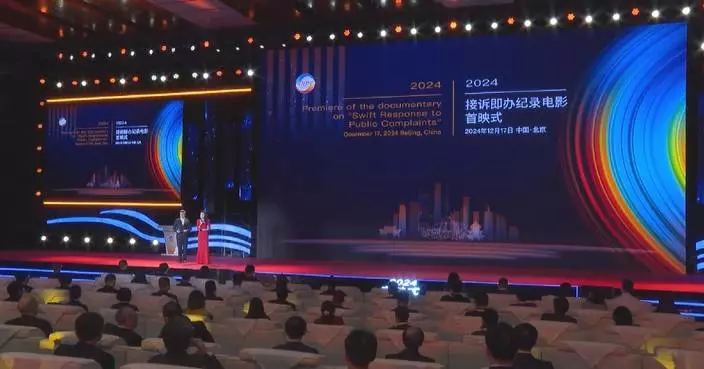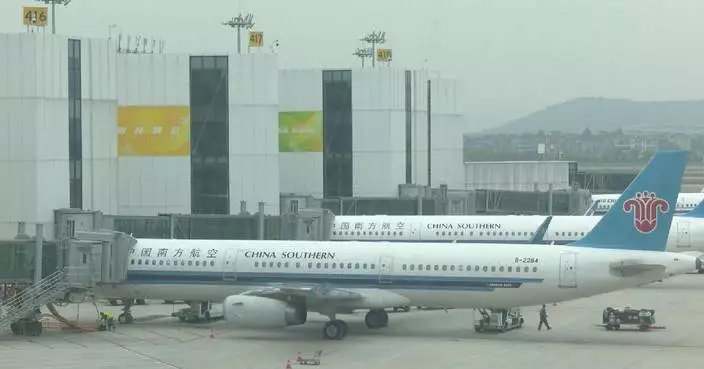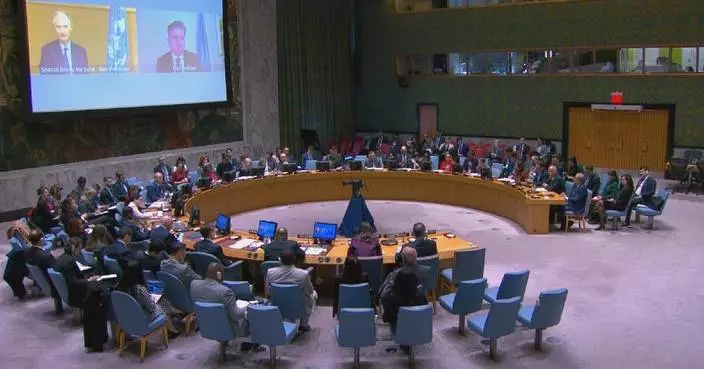Nurlan Yermekbayev, who has been appointed as the next Shanghai Cooperation Organization (SCO) secretary-general, stated on Tuesday that he will fully support and cooperate with China after taking office, working with all the member states to ensure the smooth advancement of initiatives under China's presidency.
Shen Yueyue, President of the Good-Neighborliness, Friendship and Cooperation Commission of the SCO met with Zhang Ming, incumbent Secretary-General of the SCO, and Yermekbayev on Tuesday in Beijing. They exchanged views on China's rotating presidency, non-governmental diplomacy within the SCO, the organization's development, and other key issues.
Speaking about the work of China's rotating presidency, Yermekbayev said that, despite the current international situation, the SCO continues to develop steadily and rapidly, with growing appeal and international influence. As the next secretary-general, he said he is aware of the heavy responsibilities coming with the honor, pledging to lead the Secretariat in fully supporting and cooperating with China's presidency, serving and safeguarding the interests of all the member states, strengthening the SCO, and actively advancing various areas of cooperation.
China has taken the rotating presidency of the SCO for 2024-2025 after the SCO summit in Kazakhstan's Astana in July. And China will host more than 100 meetings and events in politics, security, economy and culture, among other fields, and will strive to host a friendly, united and fruitful SCO summit in 2025.
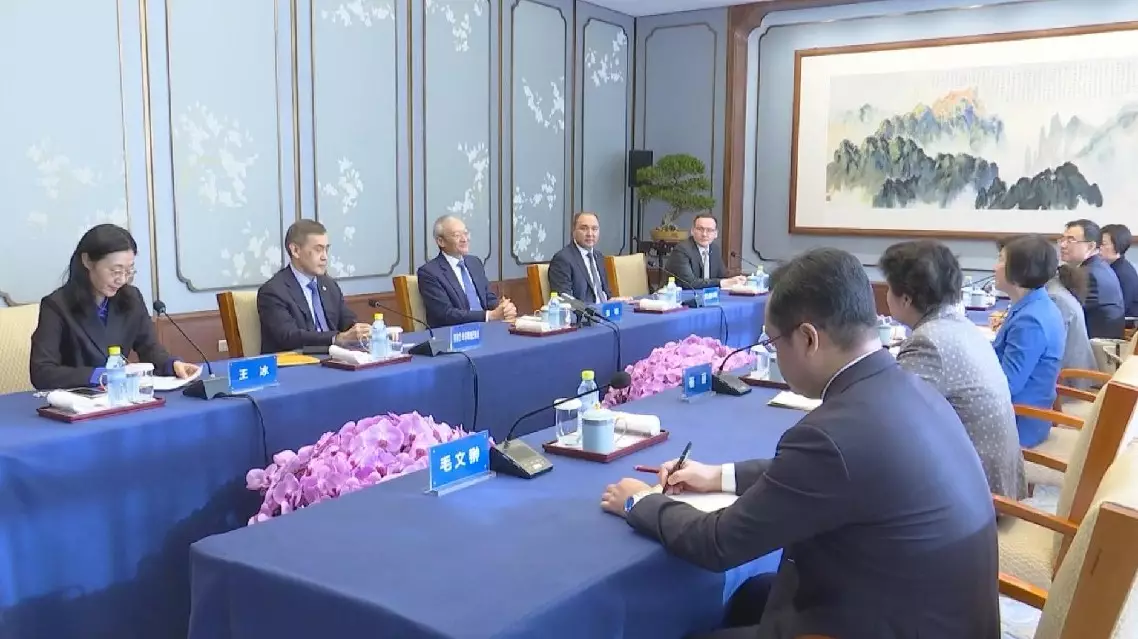
SCO secretary-general-designate vows full support for China's presidency
More than 90 percent of fruits and vegetables at the foremost wholesale market in China's Macao Special Administrative Region (SAR) come from the Chinese mainland, illustrating the deep interconnection between the regions.
Macao consumes about 250 tons of fruits and vegetables daily, and the New Wholesale Market in the SAR's northwest supplies nearly 95 percent of them.
The market, located very close to Zhuhai City in Guangdong Province, is the region's first distribution hub of fresh supplies from the mainland.
Operators closely monitor market data to ensure the flow of food into the region continues at a steady pace.
"The screen here shows vegetable sourcing, price monitoring, and daily quality inspections," said Tang Huafeng, manager of the market.
Though Tang oversees Macao's most important wholesale market by day, he lays his head in the mainland at night.
"I live in an apartment across the river in Zhuhai. I can walk to work in under 15 minutes," he said.
Lei Iong Fai, president of the Macao Vegetable Wholesalers Association, routinely arrives at the market at 7:00 sharp each morning and waits for the latest shipment of vegetables to begin unloading them.
"Because in the morning, we need to quickly unload the goods, then distribute them to different places. Once each vehicle is loaded, it's immediately driven away. We have at least 500 to 600 varieties here," he said.
Lei has kept up this daily habit for the past 25 years. In all that time, he said, vegetable supplies have never been delayed for even a single day, even during typhoons.
"Before a typhoon hits, the authorities will send us a text message to inform us of the expected landfall. We need to stock up in advance. We usually keep around 100 tons of goods in the market," Lei said.
Since Macao's return to China 25 years ago, local residents have been able to enjoy mainland fruits and vegetables more conveniently.
"Twenty years ago, about 20 percent of the produce came through Hong Kong SAR, and some items like potatoes and onions were imported from the U.S. For example, iceberg lettuce had to be shipped from the U.S., taking about a month to reach here," Lei said.
Since then, many farming bases in the Chinese mainland have introduced foreign planting techniques and seeds. As a result, fresh vegetables are delivered to local restaurants by around 8:00 every morning.
"All the ingredients are supplied by this wholesale market. We place our order for these fresh vegetables at 6:00 every day," said Kitty Hui, owner of Xinnanyue Chengji Cuisine, a restaurant at the market.
Hui founded the restaurant in 1999, the same year Macao returned to China.
"When the wholesale market first started, there were hardly any shops, and the location was pretty remote. Later, more and more people learned about this market, and things started picking up. Now, even stuff like grains and oils mostly come from the Chinese mainland," Hui said.
Since January 2023, Gongbei Customs, the key entry point for these vegetables into Macao, has implemented a new regulatory model, cutting the number of required import filings by 99 percent and greatly facilitating fresh supplies for the SAR.
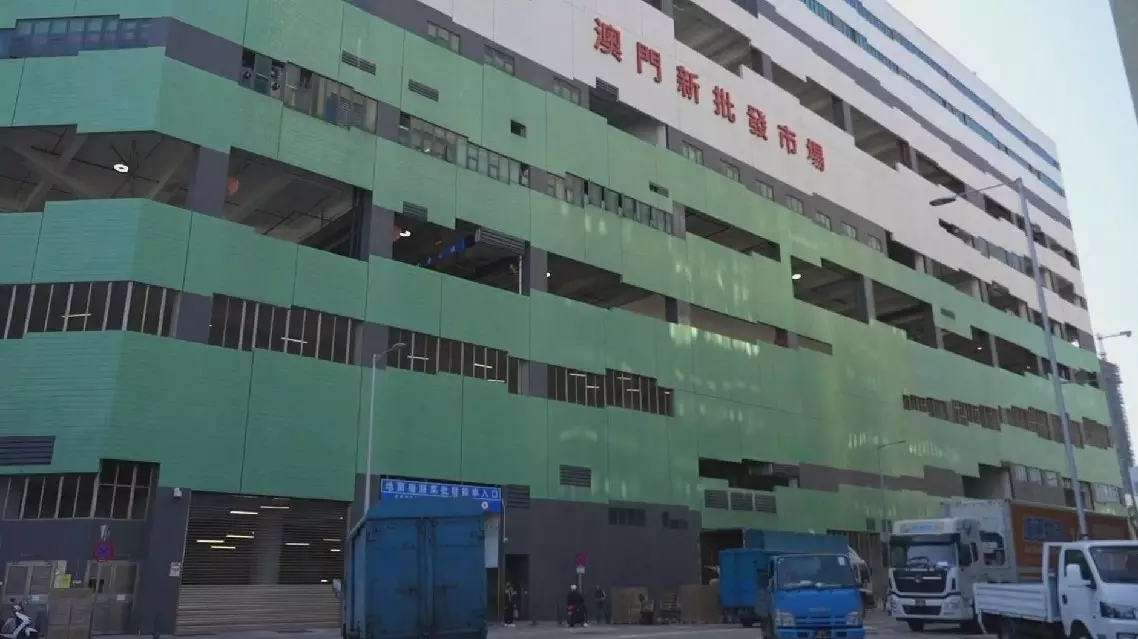
Wholesale market supplies 90 pct of Macao's fruits, vegetables from mainland




